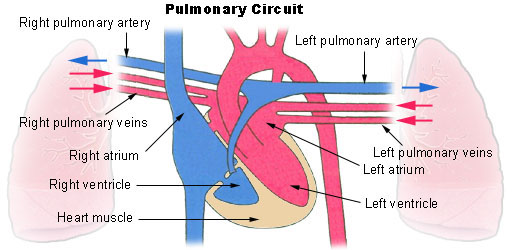Hi Guys
this website was sent to me by email and I thought it was interesting
http://www.bbc.com/news/blogs-magazine-monitor-30119410
I thought I'd quote what I saw as the salient points and what I see as the reasons for it
His team found that when healthy young men shovelled snow, their heart rate and blood pressure increased more than when they exercised on a treadmill. "Combine this with cold air, which causes arteries to constrict and decrease blood supply, you have a perfect storm for a heart attack," he says.
(my underline)
I have problems with that point because to the best of my knowledge arteries do NOT constrict but some surface skin capilaries do.
Snow shovelling is particularly strenuous because it uses arm work, which is more taxing than leg work.
anyone knows that doing squats with weights in the gym will show that higher BP comes from the legs, but I guess he's simplifing things as there is also back and even legs involved in shovelling (and yes I've done my inlaw granparents driveway in Finland which is 200 yards long....)
Straining to move wet and heavy snow is particularly likely to cause a surge in heart rate and blood pressure, Franklin says.
which ties in with what I said above about late winter snow ...
Many people hold their breath during the hard work, which also puts a strain on the body.
this is an interesting point and ties in with what Freddie said above. Anyone who has done any gym or exersize training knows that the most important point is breathing. Holding your breath is bad and especially when lifting weights is likely to create enormous pressure on your CV system. The lungs are like a great pair of blood vessel permeated sponges and fed into by the heart
holding your breath while lifting a weight pressurises that system with all those muscles squeezing in on the rib cage (normaly driving exhalation) and in combination with greater resistance from the muscles doing the work is to my understanding what makes the "
perfect storm"
In Finland where its gets quite cold too its common that people don't do outside work thats strenuous when its at its coldest. The reason is that you are likely to cause damage to your lungs by deeply rapidly breathing cold air. I've never heard of this in itself increasing blood pressure, but it can cause other problems (something similar to a cold burn which promotes a fluid response and would then set up conditions which could favor pneumonia).
The article goes on to say:
"People at greatest risk are those who are habitually sedentary with known or suspected coronary disease, who go out once a year to clear snow," he says, adding that smoking and being overweight drastically increase the risk.
so the unift, the obese and the sedentary are "most at risk" from exersize. To me this is the main issue - unfit inactive obese people suddenly doing work that they are not accustomed to ...
The article makes points similar to those I made on "
dress properly" but makes them more clear:
... push rather than lift the snow, dress in layers, take regular breaks indoors and don't eat or smoke before shovelling, he advises.
In Finland this means long johns to keep your skin warm (and importantly wick away any sweat). The new technical synthetics are excellent but merino wool is good too. Then a micro flece and lastly something like a Gore-tex or other shell jacket (does not need to be padded) to keep the snow from getting onto the microfleece. Naturally a "beanie" (as we call them, Canadians use the word tuque) for your head and some gloves.
so Kevin, given that you said you do your own yardwork, go at it thoughtfully , listen to your body (give it a break if you're puffing) and you'll be fine.
best wishes clearing the stuff.
PS: like almost everything I've ever come across in the medical world I think this (cold effects on your work) is a Myth which comes from simplifications made for ease of communicating a complex topic to simple people. If you tell them lots they'll get it wrong. Best to tell them something (which may be wrong) simple that results in them misunderstanding, but avoiding the risky task. The problems come from the compounding of this simplification and the failure in teaching people (that deliver the message) that it is a simplification.
























